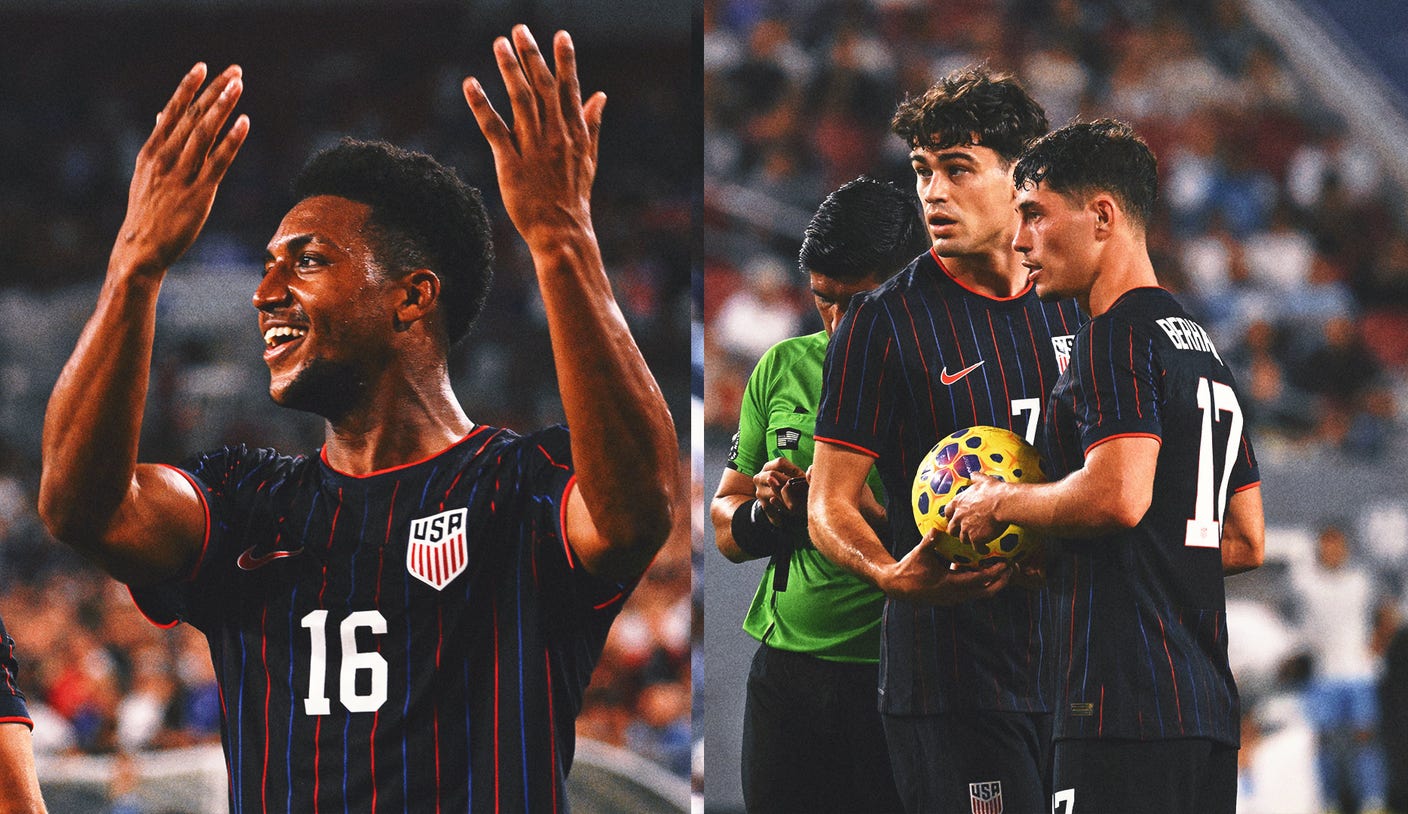
The Big Picture: Tough Calls Ahead on Who Makes the USA’s World Cup Roster
TAMPA, Fla. — Mauricio Pochettino should’ve been happy.
The U.S. men’s national team manager had just secured one of the most historic wins in the program’s 112-year history, a 5-1 drubbing of two-time world champion Uruguay on Tuesday in one of their final preparation matches for the 2026 World Cup.
The victory at Raymond James Stadium, home of the NFL’s Tampa Bay Buccaneers, marked the first time the USMNT had ever scored five goals against an opponent from South America. It also tied its record for the most lopsided win against a foe within FIFA’s Top 15 Ranking.
More remarkable than the result, or the performance, was the fact that it came with a hugely inexperienced lineup. Pochettino made nine changes from the starting 11 that beat Paraguay last Saturday, a group that was already without bold face names like forward Christian Pulisic, midfielder Tyler Adams, midfielder Weston McKennie, center-back Chris Richards and fullback Antonee “Jedi” Robinson.
Tuesday’s USMNT starters had just 155 combined international appearances coming into the contest — nine fewer than all-time appearance leader Cobi Jones. Pulisic and defender Tim Ream, Pochettino’s two most senior players, together have 161.
Yet Pochettino bristled when it was pointed out that some of the regulars were missing. For months now, he’s tried to create a culture where no squad member, however decorated or talented, is above anyone else.
Diego Luna remains a candidate to securest a World Cup spot. (Photo by Michael Pimentel/ISI Photos/ISI Photos via Getty Images)
That’s commendable, even if it goes against objective reality.
“Obviously, Christian Pulisic is Christian Pulisic, right?” midfielder Cristian Roldan answered rhetorically when I asked him after the game if there was any hierarchy at all within Pochettino’s USMNT.
The former Chelsea and Paris Saint-Germain manager insisted otherwise.
Asked how much confidence the big win might give a squad missing so many regulars, Pochettino didn’t mince words.
“I hate the [idea of] ‘no regular players,'” Pochettino said at the beginning of his postgame press conference. “If you know me, I hate to talk this way. It’s so disrespectful. We need to give credit to all of the guys.”
Sergiño Dest, left, seems like a World Cup lock. What about Sebastian Berhalter? (Photo by Edgardo Medina/NurPhoto via Getty Images)
He was right about the last part.
Over a 15-year European coaching career spent at some of the planet’s biggest clubs, the 53-year-old Argentine earned a reputation for being a players’ manager, a man who will always protect his people, the sort of unfailingly loyal boss whose subordinates would happily run into a fire for.
But he’s been fighting entitlement and a lack of competition within the top half of the American player pool since his first match on the U.S. sideline 13 short months ago. A young team that emerged from the ashes of a failed World Cup qualifying campaign in 2017 had grown too comfortable under former coach Gregg Berhalter, who was replaced by Pochettino after this same Uruguayan side played them off the field in last year’s Copa América, eliminating the tournament hosts before the knockout stage had even begun.
Tuesday’s triumph stood in such stark contrast that Pochettino almost seemed embarrassed by the margin of victory, or maybe that fact that it might just cost La Celeste boss Marcelo Bielsa, one of the most revered coaches in modern soccer history, his job just seven months before next summer’s U.S. co-hosted World Cup.
Mentee beats mentor as USMNT coach Mauricio Pochettino got the win over Marcelo Bielsa and Uruguay. (Photo by Cliff Welch/Icon Sportswire via Getty Images)
More likely, he was using the opportunity to send a message to his player pool as a whole. All coaches do that, in every sport, though few admit to it the way Pochettino did earlier this week.
Either way, he made his point.
“At the end of the day, if you don’t bring it, if you don’t have the intensity, the mentality that he wants, or if you’re not setting the tone right, he’s a coach that is going to look somewhere else,” Roldan said. “You have to bring it each and every training session, each and every camp. That’s vital for the success of the group. And the group is always the most important thing.
“I think he’s shown that he has a lot of confidence in the entire group,” Roldan continued. “That’s a really important trait to have as a manager, because anybody could play at the World Cup. Injuries happen. Players might not be called up just because of injuries or form or playing time, so everybody has to be ready. That was an example of today’s lineup, just giving the confidence to the group that anybody can play in any given moment, and he expects all of us to perform when given the chance.”
Cristian Roldan continues his push for a World Cup spot. (Photo by Kevin Sabitus/USSF/Getty Images)
They certainly did this month. Pochettino started 20 different players over the two games. The only non-goalkeeper who didn’t start at least one of them was striker Ricardo Pepi, who has logged just 451 minutes for Dutch club PSV Eindhoven this season after undergoing knee surgery earlier this year.
“We’ve got a group full of guys who are hungry for opportunity, who are competitors,” said central defender Mark McKenzie, who wore the captain’s armband for the first time in his 25-game international career. “The opportunity to step in and play for your country, you don’t let that go by the wayside. So it shows that we have a deep team, and everybody is pushing to make Mauricio’s decisions as tough as possible.”
McKenzie was referring to the final World Cup roster, of course. Pochettino can say what he wants, but he can’t take all 71 players he’s called up since being hired to the biggest event in sports. FIFA’s rules require him to establish a clear pecking order. After all, there are only 26 available spots.
Up until then, he can pretend that all of his players are equal. It doesn’t matter what anyone on the outside thinks.
“There isn’t a hierarchy,” McKenzie said. “The moment guys start to feel like they’re above another is the moment this ship starts to go down.
“It’s about everyone pushing one another, pushing the guy next to you, but also demanding more of yourself and making sure that the collective is the most important thing,” he added.
“We talk about being realistic, but also doing the impossible.”
With just two friendly games left next March before Pochettino will be forced to break at least a couple of dozen World Cup hopefuls’ hearts, it’s a needle the coach himself is already desperately trying to thread.
Doug McIntyre is a soccer reporter for FOX Sports who has covered United States men’s and women’s national teams at FIFA World Cups on five continents. Follow him @ByDougMcIntyre.
Want great stories delivered right to your inbox? Create or log in to your FOX Sports account and follow leagues, teams and players to receive a personalized newsletter daily!







